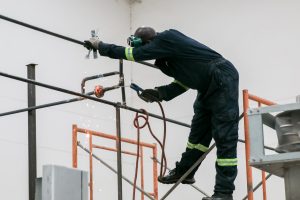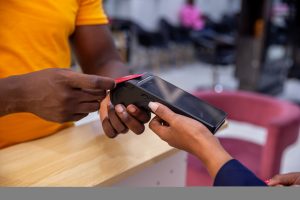Refugees will suffer disproportionately since that [food rations] is their major source of livelihood. This means that starvation – hunger – during this Covid-19 lockdown becomes a double jeopardy.
Dismas Nkunda, executive director of Atrocities Watch Africa [Source: The Guardian]
There is nothing that has received as much global coverage lately like the COVID-19 pandemic. This happening at a time when FSD Africa and FSD Uganda officially launched the Financial Inclusion
for Refugees (FI4R) project – just days before the disease hit Africa. The project has partners in Uganda and Rwanda and is working with financial service provider to drive inclusive finance of refugees.
One month into the pandemic reaching Africa, we held discussions with the partners on how it is affecting the project, and this is what they had to say.
1. Restricted movement seems to have the largest impact on the project as project staff cannot move to and from the project sites which are far from the main towns.
Both Uganda and Rwanda have restricted movement of people, vehicles and boda bodas (motorcycles) except for essential services and food. Even though financial service providers are part of essential services, the staff cannot move using public transport. Even where the organisation has vehicles, there is now a rule to only carry one person per vehicle. The restricted movement and stay home directives have also led to closure of non-fod businesses meaning some of the clients who were engaged in non-food businesses cannot operate. They are therefore unable to service loans. The FSPs are not giving loans since most businesses are closed and they cannot recruit more groups to lend to as this requires them to go to the sites. If the situation persists, there is a possibility of lying off staff as operational costs increase, and business drastically slows down. While groups were using mobile money to make repayments, this has been hampered as agents run out of float while some have been forced to close especially if the business owner cannot walk to the shop. The research component cannot also progress as planned as fieldwork cannot be undertaken.
2. FSPs using savings groups to train and deliver their products can no longer meet the groups as social distancing measures are enforced.
Trainings have had to stop as well as giving loans to groups.
3. Government pronouncements especially on the need for FSPs to consider loan repayments.
Both Uganda and Rwanda have put in place measures to mitigate the effects of COVID-19 on credit facilities. Some borrowers have taken advantage of these to delay payments.
However, it is not all gloom – Equity Bank Uganda continues to make payments to refugees who have cards and World Food Programme is now pushing for digital payments instead of food distribution which brings many people together in light of social distancing requirement. WFP and Equity Bank Uganda see this as the new frontier to drive digital payments. The drawback is that they cannot make new enrolments which require staff to go to the field. Previously, enrolment was done through public meetings and now with social distancing, they will have to adopt different approaches. To drive the digital payments, Equity Bank Uganda will also need to recruit and train merchants which again needs staff on the ground. The drive to digital payments is supported by the reduction in mobile money charges in the region – including Uganda and Rwanda. Another emergichallenge is the 30% relief reduction announced by WFP because of insufficient funds.
Note:
In Uganda, the project is partnering with Equity Bank Uganda Limited (EBUL), VisionFund Uganda (VFU), Rural Finance Initiative (RUFI) and the research and learning partner BFA Global. In Rwanda, the project is partnering with Equity Bank Rwanda (EBR) and Access to Finance Rwanda (AFR).,




